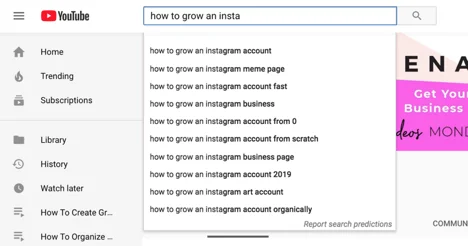What are the steps to follow when starting a YouTube channel?


Starting a YouTube channel can be an exciting and rewarding endeavor. With over 2 billion monthly active users, YouTube offers a vast audience and endless opportunities for content creators. However, getting started can be overwhelming, especially for beginners. In this article, we will discuss the steps to follow when starting a YouTube channel, along with some beginner tips, tutorials, and strategies for YouTube content creation, optimization, growth, marketing, and audience building.
Step 1: Define Your Channel’s Niche and Target Audience
Before diving into creating content, it’s crucial to define your channel’s niche and target audience. Ask yourself what topics you are passionate about and what type of content you want to create. Narrowing down your niche will help you attract a specific audience and stand out from the competition.
Step 2: Set Up Your YouTube Channel
To start a YouTube channel, you need to create a Google account if you don’t already have one. Once you have a Google account, sign in to YouTube and click on the user icon in the top right corner. From the drop-down menu, select “Create a channel.” Follow the prompts to set up your channel name, profile picture, and channel art.
Step 3: Plan Your Content
Creating a content plan is essential for consistent and organized content creation. Decide on the type of videos you want to make, such as tutorials, vlogs, reviews, or educational content. Brainstorm ideas for your first few videos and create a content calendar to stay on track.
Step 4: Invest in Quality Equipment
While you don’t need expensive equipment to start a YouTube channel, investing in some basic gear can significantly improve the quality of your videos. Consider purchasing a good camera, microphone, and lighting equipment to enhance the production value of your content.
Step 5: Create and Upload Your First Video
Now it’s time to create and upload your first video. Use video editing software to edit your footage, add music, and make any necessary adjustments. Once your video is ready, click on the “Upload” button on your YouTube channel and follow the prompts to upload your video. Don’t forget to optimize your video’s title, description, and tags for better visibility.
Step 6: Optimize Your Channel for Search
To increase your channel’s visibility and reach a wider audience, it’s crucial to optimize your channel for search. Use relevant keywords in your channel name, description, and tags. Create a compelling channel trailer to introduce new viewers to your content. Additionally, organize your videos into playlists to make it easier for viewers to navigate your channel.
Step 7: Promote Your Channel
Promoting your YouTube channel is essential for growth and attracting new subscribers. Share your videos on social media platforms, embed them on your website or blog, and collaborate with other YouTubers in your niche. Engage with your audience by responding to comments and participating in relevant online communities.
Step 8: Analyze and Improve
Regularly analyze your YouTube analytics to gain insights into your channel’s performance. Pay attention to metrics like views, watch time, audience retention, and engagement. Use this data to identify what types of content resonate with your audience and make improvements accordingly.
Step 9: Monetize Your Channel
Once you have built a substantial audience and meet the eligibility requirements, you can apply for the YouTube Partner Program to monetize your channel. This allows you to earn money from ads, channel memberships, merchandise, and sponsored content. However, remember that monetization should not be the sole focus of your channel. Creating valuable content and building a loyal audience should always be your top priority.
In conclusion, starting a YouTube channel requires careful planning, consistent content creation, and strategic optimization. By following these steps and implementing effective YouTube beginner tips, tutorials, and strategies, you can set yourself up for success in the world of YouTube content creation, optimization, growth, marketing, and audience building. Remember to stay true to your passion, engage with your audience, and continuously improve your content to thrive on YouTube.
Recent Posts
How do I create an engaging and informative online quiz or assessment?
Creating an engaging and informative online quiz or assessment can be a powerful tool for… Read More
What are the most effective methods for managing and reducing work-related stress in the hospitality industry?
Work-related stress is a common issue in the hospitality industry, where employees often face long… Read More
How can I improve my assertiveness and communication skills in a leadership position?
In a leadership position, assertiveness and effective communication skills are crucial for success. Being able… Read More
What are the key elements of a successful employee recognition and rewards program?
Employee recognition and rewards programs play a crucial role in motivating and engaging employees, as… Read More
How do I effectively manage and respond to customer feedback and reviews?
Customer feedback and online reviews play a crucial role in shaping a company's reputation and… Read More
What are the best strategies for effective time management as a stay-at-home parent?
Effective time management is crucial for stay-at-home parents who juggle multiple responsibilities on a daily… Read More